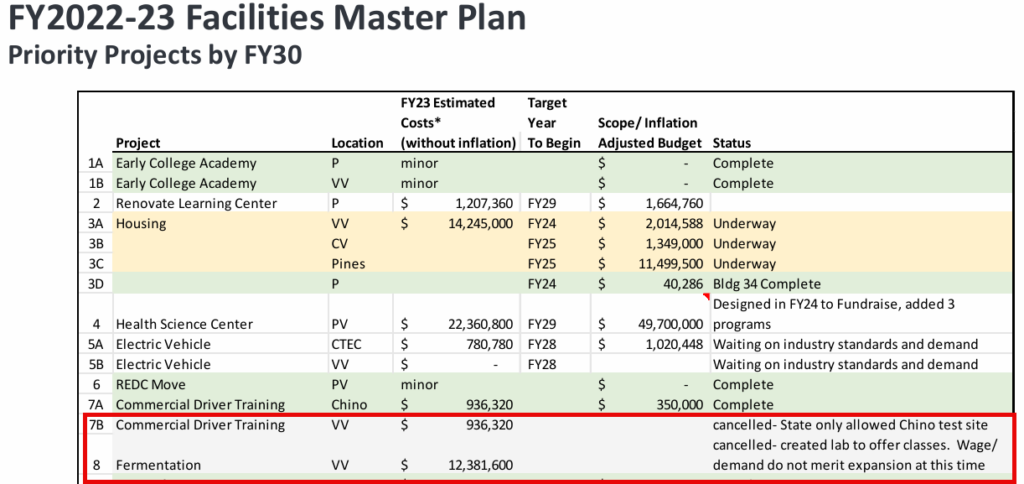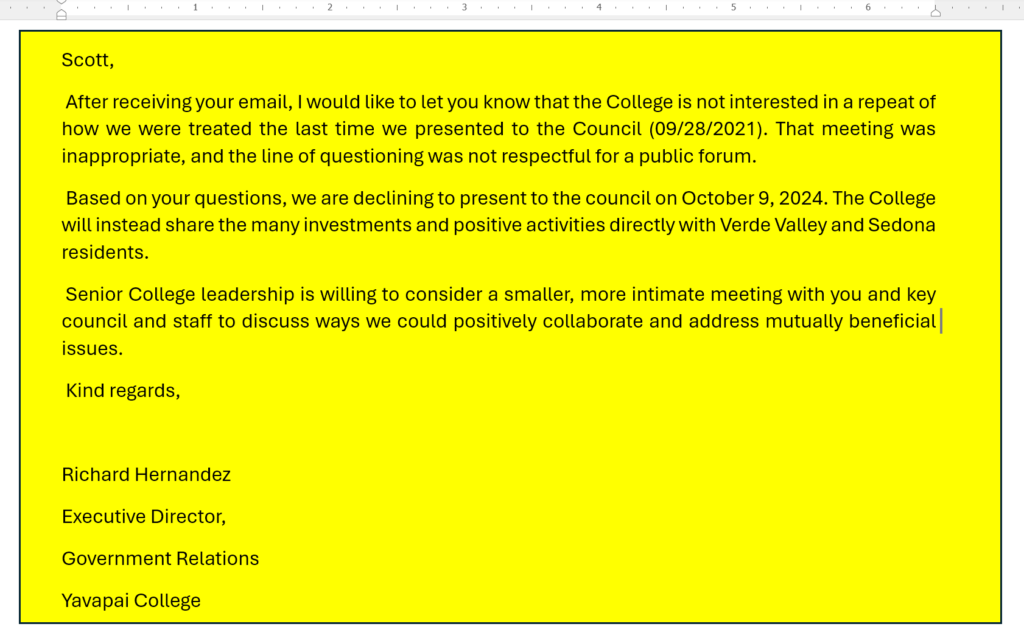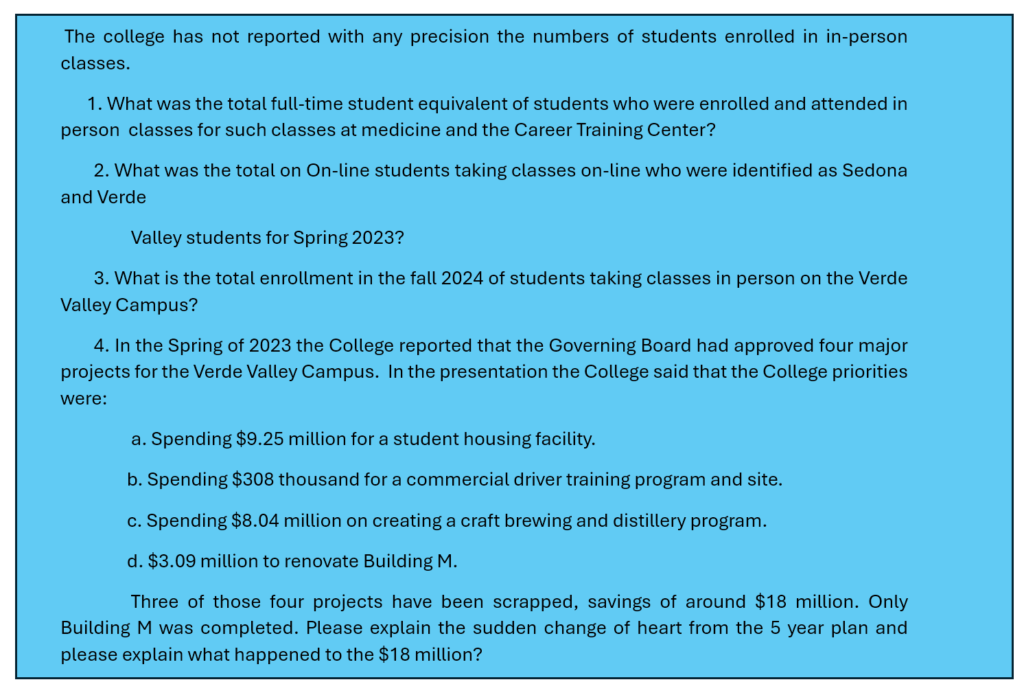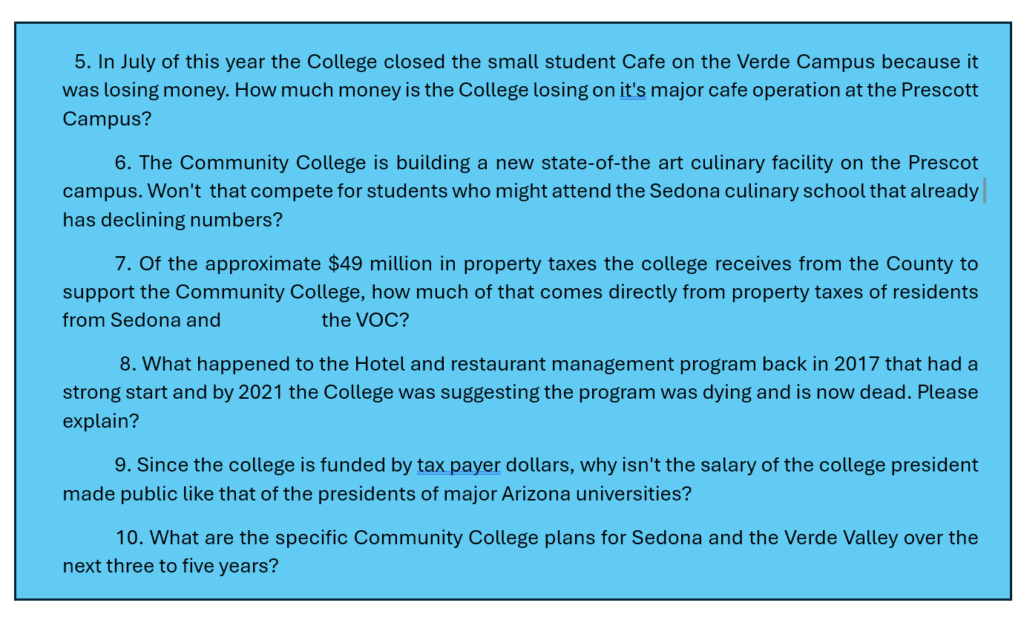Lockdown lifted and all clear given at 11:00 a.m. Monday, May 19
A lockdown affecting all Yavapai College campuses was lifted late Monday morning following an early morning threat made by phone. According to various news reports, at approximately 4:15 a.m., a caller claimed to be inside a Yavapai College classroom with a firearm, prompting a rapid response from multiple law enforcement agencies and the immediate lockdown of all college locations.
Authorities conducted thorough searches of each of the college’s seven sites, including those in Prescott, Prescott Valley, Chino Valley, Clarkdale, Prescott Pines, and Sedona. While students, employees, and the public were instructed to avoid the campuses, no threat was ultimately found, and the all-clear was issued around 11 a.m. Despite this, college officials decided to keep all campuses closed for the remainder of the day as a precaution.
In a statement, a Yavapai College spokesperson expressed gratitude to the community for their patience and to law enforcement for their swift and coordinated response. The college emphasized its commitment to safety and praised the continued collaboration with first responders in protecting students, staff, and the public.
Statement from Yavapai College
Around 4:15 a.m. today, all Yavapai College campuses and centers were placed on lockdown due to a threat received by phone of an individual claiming to be in a Yavapai College classroom with a firearm. Multiple Yavapai County law enforcement agencies, along with Yavapai College Campus Safety, responded and thoroughly cleared all seven college locations, which include Prescott, Clarkdale, Prescott Valley, Chino Valley, the Career and Technical Education Center, Sedona, and Prescott Pines. The threat was found to be unsubstantiated, and there were no injuries.
The investigation is still ongoing.
We appreciate your patience and understanding as our first responders worked to ensure everyone’s safety, and we thank our law enforcement agencies for their coordinated efforts and quick and efficient response.
Thank you to the law enforcement agencies for their continued collaboration in keeping our employees, students, and community members safe.
 Colleges across the country are increasingly being targeted by fraudsters who use stolen or fake identities to enroll in classes and collect financial aid. For example, at Century College in White Bear Lake, Minnesota, officials estimate that as many as 15% of students in one class were part of what has been described as “an organized crime ring” exploiting this scheme.
Colleges across the country are increasingly being targeted by fraudsters who use stolen or fake identities to enroll in classes and collect financial aid. For example, at Century College in White Bear Lake, Minnesota, officials estimate that as many as 15% of students in one class were part of what has been described as “an organized crime ring” exploiting this scheme.
 On Thursday afternoon, February 6, 2025, members of the Yavapai Community College Governing Board were notified via email that, due to unspecified “safety concerns,” future Board meetings would be held on Zoom. The notice stated that Chair McCasland “believes this will allow all meeting attendees, including the public, to participate in a safe setting.”
On Thursday afternoon, February 6, 2025, members of the Yavapai Community College Governing Board were notified via email that, due to unspecified “safety concerns,” future Board meetings would be held on Zoom. The notice stated that Chair McCasland “believes this will allow all meeting attendees, including the public, to participate in a safe setting.” It may have shocked some to learn that Yavapai Community College President Dr. Lisa Rhine has issued a chilling directive to staff, instructing them to never discuss college or community matters with a member of the District Governing Board. According to Dr. Rhine, even an innocent conversation with a Board member could lead to disciplinary action if it touches on something she considers and defines as “college operations.”
It may have shocked some to learn that Yavapai Community College President Dr. Lisa Rhine has issued a chilling directive to staff, instructing them to never discuss college or community matters with a member of the District Governing Board. According to Dr. Rhine, even an innocent conversation with a Board member could lead to disciplinary action if it touches on something she considers and defines as “college operations.” OPINION: The outgoing Yavapai Community College District Governing Board, with two lame-duck members, convened on November 21 at the Prescott Campus, where one of the major issues was a controversial resolution drafted by current consultant and former college president Dr. David Borofsky. The resolution’s main purpose appears aimed at stifling and controlling the free speech and behavior toward faculty and staff of elected Board members. As written, the resolution raises serious concerns about transparency and accountability.
OPINION: The outgoing Yavapai Community College District Governing Board, with two lame-duck members, convened on November 21 at the Prescott Campus, where one of the major issues was a controversial resolution drafted by current consultant and former college president Dr. David Borofsky. The resolution’s main purpose appears aimed at stifling and controlling the free speech and behavior toward faculty and staff of elected Board members. As written, the resolution raises serious concerns about transparency and accountability. Yavapai Community College pays $3,300 annually to participate in the Bellwether College Consortium, according to the organization’s website. This prestigious consortium recognizes outstanding and innovative programs among community colleges across the United States and its territories.
Yavapai Community College pays $3,300 annually to participate in the Bellwether College Consortium, according to the organization’s website. This prestigious consortium recognizes outstanding and innovative programs among community colleges across the United States and its territories.



 The decision to close down the Student Café on the Verde Valley Campus was made by Yavapai Community College’s Prescott based Executive Leadership Team (ELT). The Yavapai Community College Sedona/Verde Valley Campus Dean is not formally included among this group of decision makers.
The decision to close down the Student Café on the Verde Valley Campus was made by Yavapai Community College’s Prescott based Executive Leadership Team (ELT). The Yavapai Community College Sedona/Verde Valley Campus Dean is not formally included among this group of decision makers.